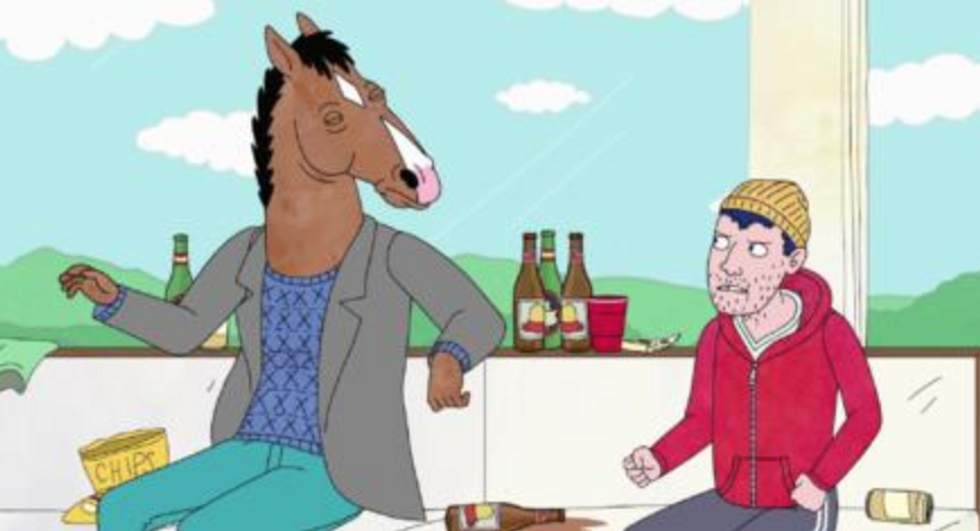Recently, there's been a speculation that Americans are absorbing cynicism and dark comedy. Obviously, this comedy technique has been around for a while. From Charlie Chaplin to Seinfeld, I'm aware that Americans aren't new to the concept of SadCom.
But there's a new generation that is bringing sad comedy back into the spotlight and the Youtube channel CrackerJacked does a great job at analyzing the progression of the combination of comedy and tragedy in one of their videos while concentrating how the comedian Louis C.K. incorporates this phenomenon in his own work.
John Campbell, the creator of CrackerJacked, made a point pertaining to the use of laugh tracks in most television sitcoms. He contrasts the same scene from Louis C.K.'s show Horace and Pete, emphasizing how inserting a laugh track forces the audience to automatically register what they are supposed to find funny. This basically sets up an unrealistic expectation of the show, itself, making the audience feel less connected and less willing to praise these sitcoms for their comedic style.
Campbell focuses on just one show that provides a reality that is also able to be made fun of sometimes. Shows that I've seen that portrays the same level of tragedy is the Netflix animated series Bojack Horseman. This series is about a celebrity talking horse who gradually presents more and more indications of depression. However, the show is able to uphold it's "comedy drama" genre by using the character's defense mechanism of self-destruction as a method to follow the trend of self-deprecating jokes that has been popular throughout the millenial generation.
But why does this show represent the rise of sadcom?
Well, apart from various articles written by The Guardian, Vulture, and The A.V. Club, Bojack Horseman is the most transparent in the sadcom industry. Although the articles also talk about the shows Rick and Morty, Community, and Review, they were open to drawing more attention to the talking horse.
Tragedy, in my opinion, is the future of comedy. Charlie Chaplin justifies that idea by saying, "Life is a tragedy when seen in close-up, but a comedy in a long shot."























